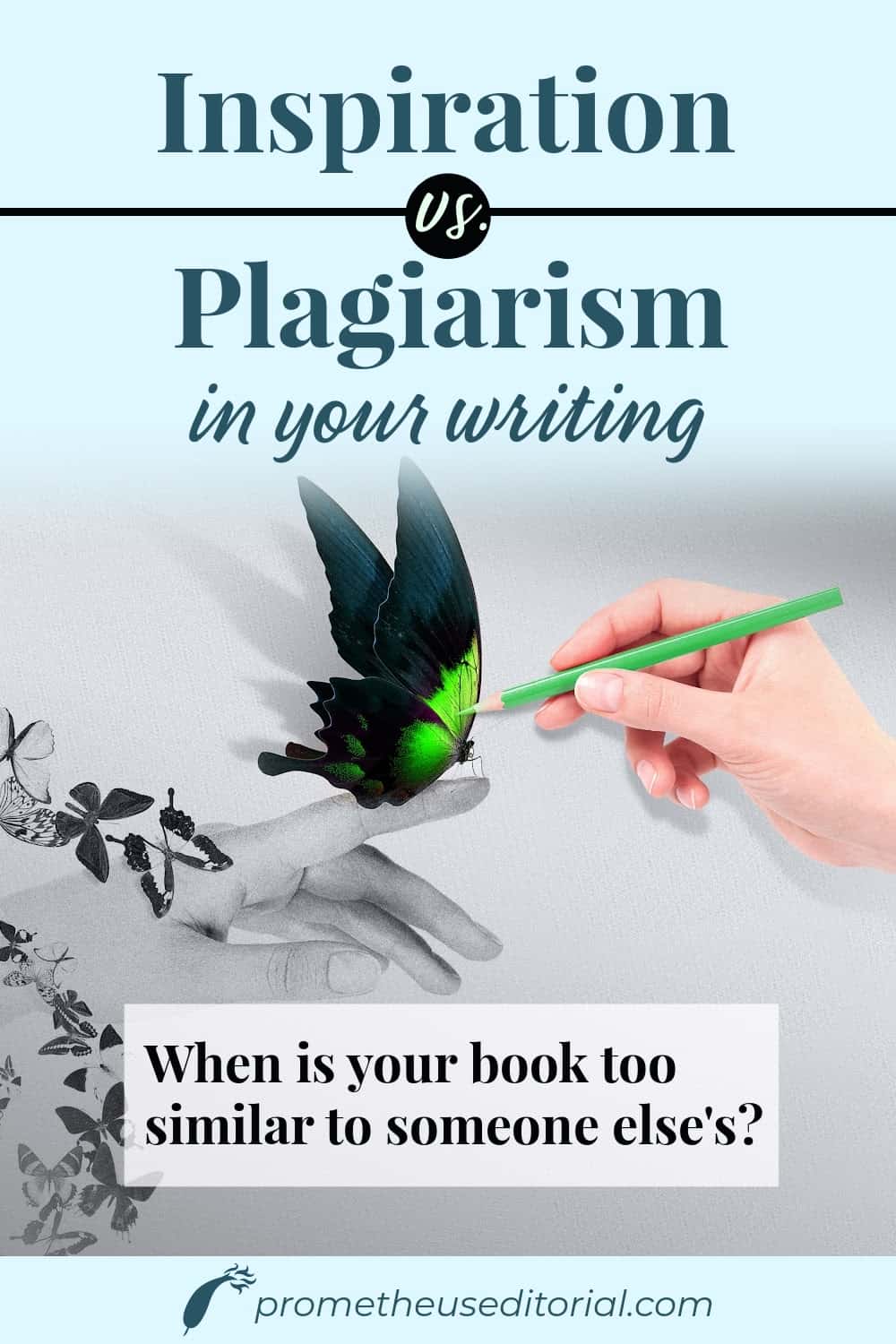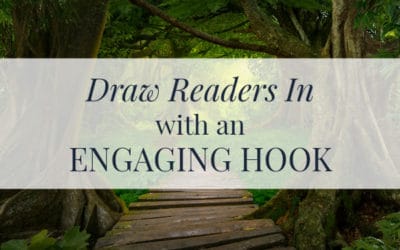Inspiration vs. Plagiarism: Write an Original Story
If you’re a writer, you’ve probably questioned at least once whether your ideas are original enough or if your novel is too similar to someone else’s.
It’s great to draw inspiration from other works, but you want to write something new and different. And you want to stay away from plagiarism.
And what should you do when you encounter a published book that has a lot in common with the novel you’re currently writing and it feels too similar for comfort?
Tell similar stories in different ways
If you realize your book is a lot like someone else’s, this isn’t necessarily a bad thing. And it doesn’t necessarily mean that there’s plagiarism involved.
Similar stories aren’t a problem as long as there’s something that makes each one unique.
And you’re a writer, you thrive on creativity, so adding new and original ideas to your story is well within your skillset.
The value of inspiration: tell stories that feel familiar to readers
People love what feels familiar, and your readers are no exception. They want to read books that have familiar elements to them.
This is why drawing inspiration from other books can help you to make your book better.
Prospective readers are more likely to buy your book if it sounds similar to something they’ve previously read and enjoyed. Once they start reading, they’re more likely to love your book if they notice similar patterns to what they’ve loved in the past.
Books in the same genre draw on similar tropes
That love of familiarity is the reason why genres exist and why each genre tends to draw on a set of common tropes. The authors in each genre draw inspiration from the same central ideas.
If it was a bad thing to write new stories that are similar to older ones, there wouldn’t be any formulas to writing a book and everything would be a free-for-all. Nothing would be similar to anything else, and it would be impossible to categorize books into genres.
But instead, we have a selection of distinct genres that share a target readership with specific expectations of what kind of story will be told and what tropes will factor into it.
Inspiration without plagiarism means putting your own spin on it
The importance of contributing your original ideas cannot be overstated.
Readers love familiarity, but they want books that put a unique spin on those older, more familiar tropes and formulas. They want the things that they already know to be examined in a new way.
So use your creativity and brainstorm ways to make your story new and different.
Read other books in your genre to get inspiration, but make sure there’s something unique and interesting about your plot, your characters, your setting, and every other area of your story.
Tolkien’s essay “On Fairy Stories”
If you’re a fan of J.R.R. Tolkien, you may have heard of his essay “On Fairy Stories.”
In this essay, he talks about the fantasy genre, its value and place in society, and its contributions to literature. (He uses the term “fairy stories,” but these days the term “fantasy” gives a clearer idea of what he’s discussing.)
I highly recommend it to authors of all kinds, but especially if you’re writing fantasy.
Drawing inspiration from literature and the Cauldron of Story
One of the ideas that Tolkien discusses in “On Fairy Stories” is the concept of the Cauldron of Story.
To simplify it down, the Cauldron of Story is a metaphorical construct that represents the world’s body of literature. It contains all the elements of every story ever written, all mixed together in a way that allows them to combine in new ways.
As Tolkien states, “The Cauldron of Story has always been boiling, and to it have continually been added new bits, dainty and undainty.” (Tree and Leaf, page 27)
The role of the author in the Cauldron of Story
As you write your novel, you’re taking ideas out of the Cauldron. You’re reading other books and drawing inspiration that you apply to your own work.
To these ideas, you’re adding your own “seasonings” to create something a bit different from anything that has gone into the Cauldron in the past.
Tolkien tells us that “If we speak of a Cauldron, we must not wholly forget the Cooks. There are many things in the Cauldron, but the Cooks do not dip in the ladle quite blindly. Their selection is important.” (Tree and Leaf, page 31)
It’s important to take inspiration from sources that are relevant to your book and your readers. And then add your original seasonings to make sure the result is uniquely yours.
No book is completely original
Every story draws on the stories that came before it. And it in turn inspires future writers and influences their stories.
It’s okay to not be completely original. And in fact, it’s impossible to be completely original.
No piece of writing is completely original. And that doesn’t mean it’s plagiarism.
Being inspired by other books is good and isn’t plagiarism
If you’re an author or if you plan to be one someday, you need to be reading other people’s books. Especially books in your genre.
Reading will give you inspiration for what to do with your book. Consuming stories will show you what your readers like and want to read.
You don’t need to start from scratch. Go to the Cauldron of Story, ladle something out, and build on that. But stir it around first — you want to end up with something original.
If you take different pieces from different stories and put them together, you’re drawing inspiration from them. Whereas if you were lifting out whole characters or plots, that starts to get into the realm of plagiarism.
You want to be taking a different combination of ingredients out of the Cauldron than anyone else has put into it.
Plagiarism is unethical and illegal
If you don’t stir the Cauldron first, you’ll be in danger of plagiarizing other people’s work. Which is unethical, and often illegal.
Don’t take all your inspiration from one book. Read many books and take different elements from each one.
And every time you take ideas from someone else’s story, add your unique seasonings to it so that it isn’t quite the same. Then you’ll be letting them inspire you but steering clear of plagiarism.
How to be inspired by other works without plagiarizing them
I know I’ve already said this, but adding your own ideas is key.
For example, you could create a world that’s a lot like Middle-earth, but it needs to be different in some way. And you could add in a plot that’s like one of the many plotlines of A Song of Ice and Fire, but there needs to be something that differentiates it and makes it unique.
You could have your main character be similar to King Arthur, but something about him must set him apart from the original King Arthur.
Or maybe he is King Arthur, but a slightly different version of him than other authors have written about. Writing about King Arthur isn’t plagiarism because he’s such an old character that he’s in the public domain. But to avoid plagiarizing any recent retellings of his story, make sure that your retelling is different from the others out there.
Gain inspiration for your secondary characters and other elements of your story from a variety of sources, and put your unique spin on each one.
Ideas are less valuable than the execution
This isn’t legal advice, and I’m not a lawyer, but I do know that the law doesn’t do much to protect ideas. This is because ideas aren’t where the value is.
The value is in the execution of those ideas.
And maybe you’re thinking, well, that isn’t true because patents are ideas, and they’re protected by law. Patents might sound like ideas, but they’re actually blueprints of how to execute ideas.
A great idea is useless if you don’t have good execution.
What good execution looks like for writers
What you need to do to be successful as an author is to take that story idea floating around in your head and turn it into a high-quality book that readers love and that you can sell.
And that’s the hard part. And it takes much longer than the time it took to generate the original idea.
But if you want to avoid plagiarism, you do need to execute that idea in a way that is different from how others have executed similar ideas.
Don’t get all your ideas from the same place
As I said before, you don’t want to take too many ideas from the same source. That’s boring and hard to get people interested in.
And it can get you dangerously close to plagiarism.
But it’s completely okay to take ideas from other people’s books and add your new ideas to them to make them yours.
What matters is that you’re using those old ideas in a unique way to construct a compelling story that keeps your readers engaged from start to finish.
If you’re careful, don’t worry about plagiarism
If you aren’t trying to copy someone else’s story, you probably don’t need to worry about plagiarism.
So if you read a new book you’ve never read before and realize it has a lot in common with the book you’re currently writing, don’t freak out.
Your story is probably still original enough.
But what if you notice too many similarities?
If you aren’t comfortable with the degree of similarities, there are things you can do to differentiate your novel more.
Even if you’re pretty sure it isn’t plagiarism, you still want to avoid anyone else thinking that you’re plagiarizing another author’s work.
If you decide there are too many similarities, you don’t have to scrap everything or redo your story.
You just need to find ways to add extra details that differentiate your plot, your characters, or whatever it is that doesn’t feel original enough.
Readers buy books that sound unique
In your blurb and elsewhere in your marketing, emphasize what makes your book unique.
Readers want to read something new and interesting. They don’t want to read books that are too similar to other books they’ve read in the past.
They definitely won’t want to read something if they think you’re plagiarizing a book they’ve already read.
So make it clear what makes your book different and it will be easier to sell it.
Readers are also more likely to buy what sounds familiar to them
You want to convey the unique differentiators that set your novel apart from the other books out there. But it’s also important to show readers in what ways your book is similar to the books they have loved in the past.
Readers want something that feels familiar in certain ways but seems new and interesting in other ways.
So you want a balance, both within the book itself and in the way you present your book in the blurb, your cover, and in every other area of your marketing.
Example: a romance cover
For example, if you’re writing a romance novel, you want a cover that makes it look like a romance novel.
You want readers to know that your book takes inspiration from the other romance novels that your readers have read, so you want it to look similar in some ways.
But you don’t want a cover that looks the same as everyone else’s cover because you need yours to stand out. You don’t want readers to think you’re plagiarizing anyone or that you lack creativity.
So research what other covers look like and get something that draws on the same general themes but with a unique spin on it. Get inspiration, but don’t plagiarize.
The big takeaways on inspiration vs. plagiarism
So what should you do if you notice similarities between your book and someone else’s? Recognize that no book is unique, and that’s okay.
If your book is already published, don’t worry about it. You weren’t trying to copy anyone else, and the way you executed those ideas is likely fairly different from what the other author did.
If your book isn’t published yet, find ways to add new details that differentiate your story, your plot, your characters, and whatever other elements don’t feel original enough.
And if you haven’t encountered this but are concerned about the possibility, know that writing a book that’s unique in every way is impossible. And even if you succeeded, readers wouldn’t enjoy it as much as they enjoy a book with the right balance of familiar elements and creative new ideas.










